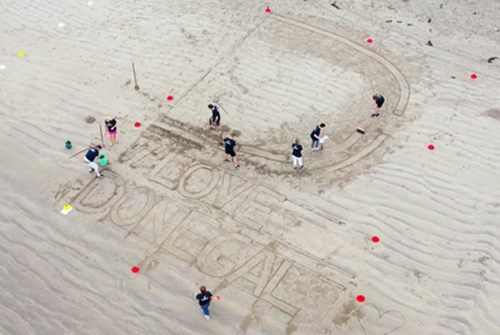The SERA and the MWRA transferred its portfolio of ten EU co-financed projects to Tipperary County Council. The Project Unit has seen these projects out to completion, focusing on community and economic development in Tipperary and beyond.
The Unit will work on any new projects that are won in the future. It will also be the role of the project staff to seek out new funding opportunities and to prepare and/or coordinate preparation of bids in response to appropriate Calls for Proposals, this in consultation and cooperation with inter-regional, regional and local partners. There has been a focus on three main projects for Tipperary County Council in community and economic development.
INTERFACE
The INTERFACE project aims for the project partners to develop and test a pilot community training programme to enhance community innovation and entrepreneurship in a small number of selected fragile communities in each project partner country. Fragile communities are considered to be ones which have been experiencing some form of economic decline and de-population in recent years, resulting in demographic, economic and social challenges for the community. But equally, a fragile community is also seen as one which has the potential to work towards the betterment of their community through engagement and participation by members of a community in a training programme.
It is hoped, through the project activities, to develop a high-quality practically-oriented community workshop and training of community coaches’ programme, which can then be made available for use across the E.U. to enable fragile community members to acquire skills/competencies which will assist in solving their community issues, thus empowering their communities.
E-DRIVERS
The background to the project is that research shows that the combination of youth and inexperience puts younger drivers at higher high risk of crashing than older drivers and that this is an issue that is common to all European countries, with some countries experiencing higher levels of road traffic accidents than others, but with the same social and economic consequences. The objective of the project is to develop and test an education & training programme that aims to alter the fundamental attitudes, amongst primarily young drivers & pre-drivers, that exacerbate risk, focusing on self-awareness and understanding the circumstances that lead to safer driving. This will be achieved through a multi-faceted work programme over the project’s duration.
CATALYST EU PROJECT
The project is focusing on micros and SMEs in two sectors, the Food & Drink and Life Science (assisted tech). The partnership has identified that enterprises in these two sectors are often involved in developing bespoke and niche products with limited production runs. The SMEs also share other barriers to developing new products and processes including, Diversifying IP to create new products; Reducing waste to maximise profit; Accessing new markets; Increasing sustainability of products; Availability of time; Failure to fully exploit new products.
What is proposed through the CATALST cross-border pilot project is to use sustainable development as a catalyst to drive design and innovation for Welsh and Irish life science and food & drink sector SMEs. The project will initially use innovation workshops where SMEs from both sectors will jointly explore sustainable development opportunities. Following a diagnostic phase, suitable SMEs will then embark on a unique innovation residency programme to work alongside specialist HEI staff and operation partner expertise to create new product and process outputs.
Source: Tipperary County Council
[sibwp_form id=2]













